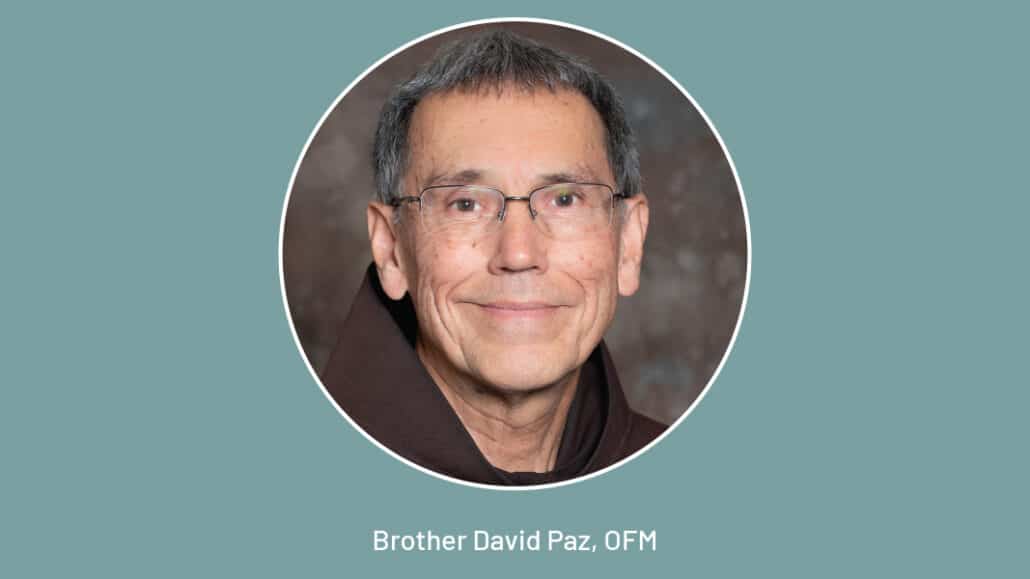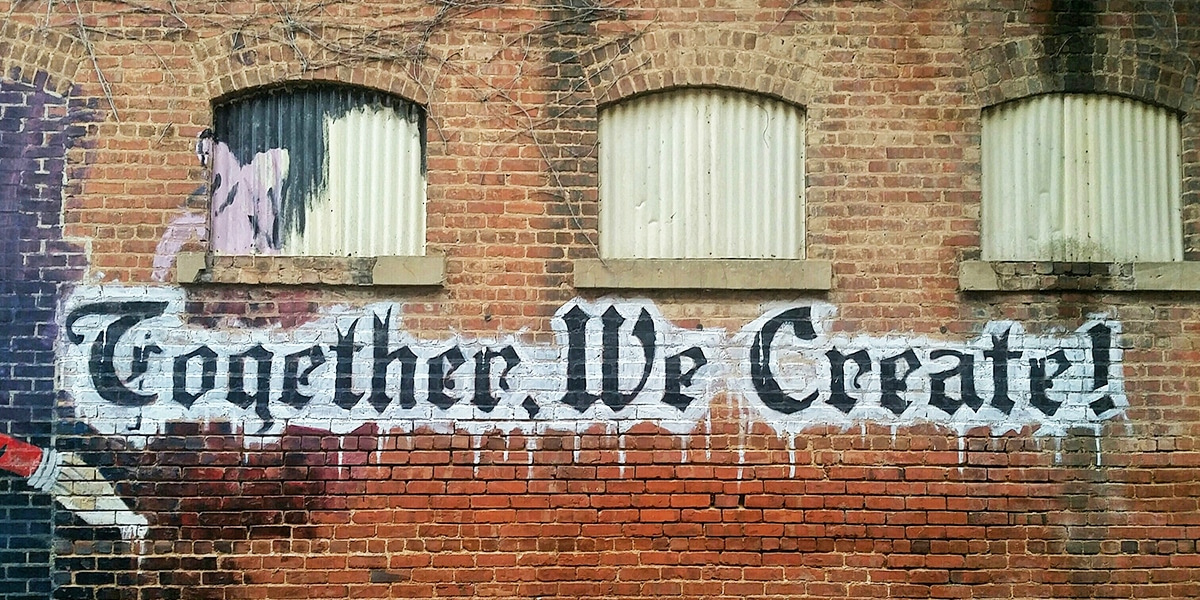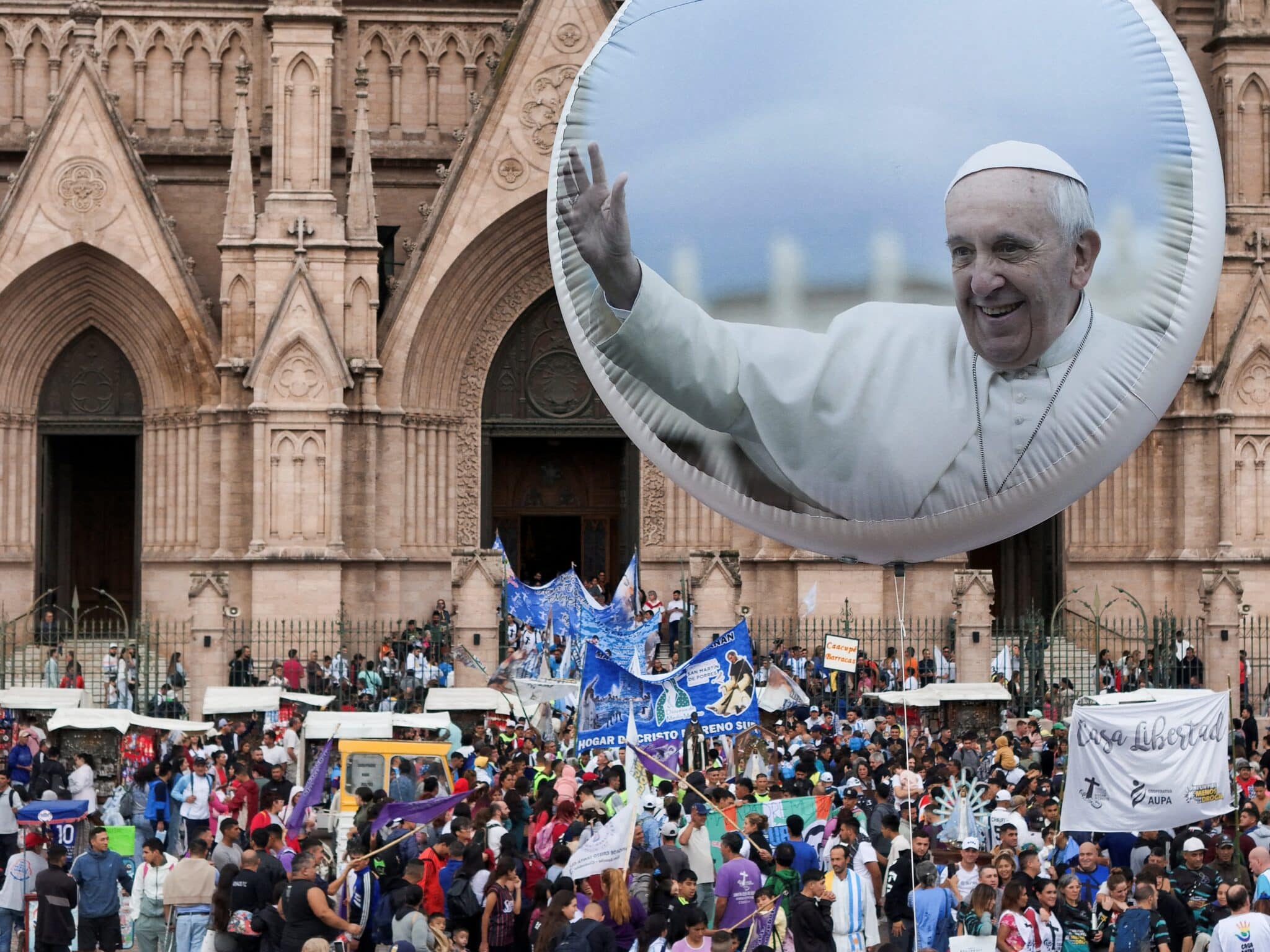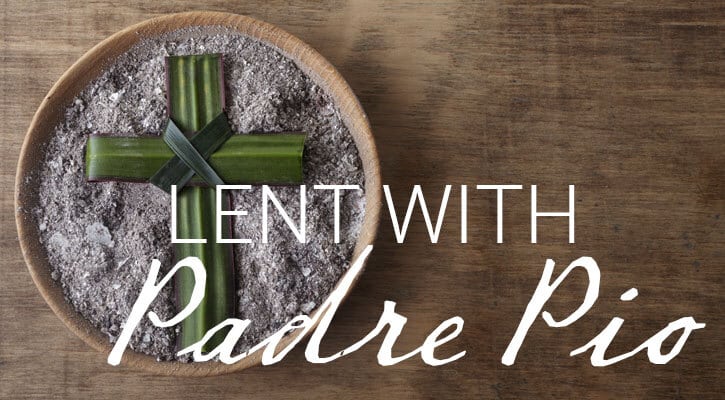Some who follow the Franciscan way discover the world of St. Francis later in life, sometimes even stumbling upon it without meaning to. For Brother David Paz, OFM, his memories of friars in brown robes stretch back to early childhood and his upbringing in Las Cruces, New Mexico. Growing up there in the 1950s, the town was small, at around 14,000 residents, but brimming with diversity. “The environment I grew up in was very multicultural, a mix of Hispanic, Anglo, and Native American [cultures],” Brother David says. Diversity is also found in Brother David’s own background. “My paternal grandmother was from Mexico and my maternal great-grandfather came from Germany,” he says. “Both my father and his father grew up in the same town where I did, so I have deep roots there.”
Brother David says he was a typical “cradle Catholic”—raised in the faith by his devout mother and father—along with his nine younger siblings, and he attended a Catholic grade school. “I was baptized within two weeks of my birth and confirmed at the age of 2 ½ (an interesting detail, but that was done in those days),” he recalls. It was also in his early years that he encountered the Franciscans.
“I knew of the Franciscans since I was a child, since Franciscans from Mexico had moved their house of philosophy up to Las Cruces during the persecution [there]. My grandmother, since she was from Mexico, befriended them, and she herself was one of the founders of the Spanish-speaking fraternity of Secular Franciscans in my hometown.” His father even tried to get a 6-year-old David interested in a junior Secular Franciscan group. The young David attended one meeting but didn’t continue going after that. His life as a Franciscan, it seems, would have to wait.
A Spiritual Rebirth
“Growing up and even in early adulthood, my desire and intention was to get married and have a family, and I just assumed this is what would be,” says Brother David. “Religious life was not on my radar at that time.” Working as an installer and repairman for a telephone company, he found himself feeling a gnawing dissatisfaction with life, as if something were missing. Attending a Catholic retreat led to a profound spiritual awakening for Brother David. “I had been a lifelong Catholic because that’s just what we did as a family,” he says. “As I was overwhelmed with that realization, I desired to not only say yes to my Baptism but take it as far as I could,” he remembers.
Taking things “as far as I could” eventually translated into entering religious life. “I entered the novitiate in September 1978 in Oakland, California,” he says. “I worked for three years in the St. Barbara Province infirmary in Santa Barbara, California, during temporary vows, and I made [my] solemn profession on August 6, 1982, at Old Mission Santa Barbara.”
It’s fair to say that a large part of Brother David’s life as a Franciscan has been spent in mission work. “I was interested in the missions since childhood, seeing the stories in Catholic newspapers and hearing about them in Catholic school,” he says. “But in actuality it was somewhat accidental, or providential.”
A friend in the novitiate wanted to minister to the people of a Native American reservation. Their formation directors didn’t think it was a good idea for his friend to go alone, so they asked Brother David to join him. “[My friend] returned to studies after six months, but I remained [at the reservation] for about nine months,” he recalls. “Later, after I made my solemn profession, another friar was ordained close to the same time, and he also desired to minister among Native Americans. The two of us were sent to the Tohono O’odham Nation village of Topawa, Arizona, for our first assignment as Franciscan friars.”
After nearly a decade serving that community, Brother David volunteered to help the Apostolic Vicariate of Requena, Peru, located in the country’s Amazon region. “This was in 1992, mind you, when Sendero Luminoso, at the time one of the most violent terrorist groups in the world, was seeking to overthrow the government,” he says. “There was also an epidemic of cholera in Peru happening at the time. It was not a place where people were going to visit!” Above the noise of these challenges, Brother David could still hear God’s call to this troubled part of the world. “When I arrived at the vicariate, the bishop gave me permission to baptize, preach, and administer charitable works, similar to what a deacon would do,” he says.
Brother David remembers a Peruvian girl who was about 9 years old and preparing for first Communion when she was diagnosed with terminal cancer. He was called to the girl’s deathbed to administer her first Communion, a memory that has stuck with Brother David as one of the most poignant and powerful from his time in the South American country.
From there, Brother David’s life as a missionary has taken him to Guatemala, Mexico, and parts of the Southwest. Now, although he is considered “actively retired,” he volunteers at the San Xavier del Bac Mission in Tucson, Arizona. “I jokingly tell people that means I still work, but I just don’t get paid for it,” he says. He occasionally is the lector at Mass at San Xavier, and sometimes serves as an extraordinary minister of holy Communion. Thinking back on his life as a Franciscan brother, wherever he served as a missionary, what stands out to him are the people.
“As you may have heard from other missionaries, and I agree, I always feel in the end that I have received more than I’ve given,” Brother David says. “Each mission situation is always in some ways unique, and there isn’t a playbook to follow exactly. This means being deeply rooted in prayer and open to being guided by the Holy Spirit.”








